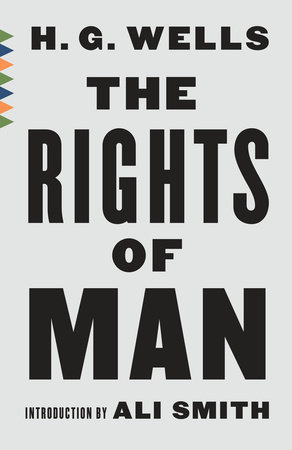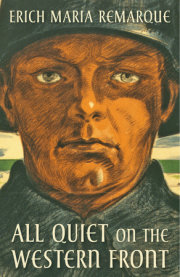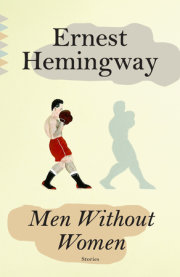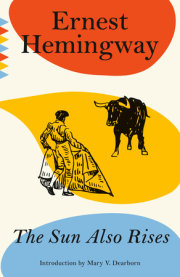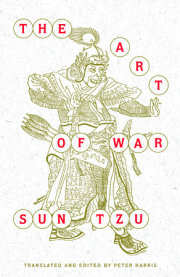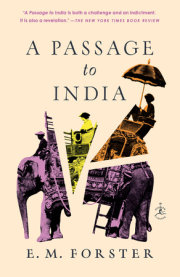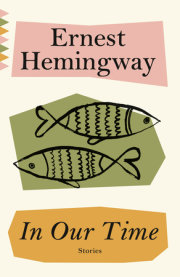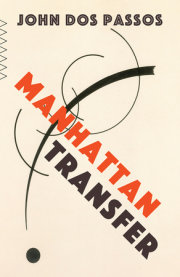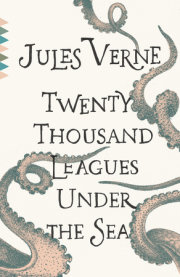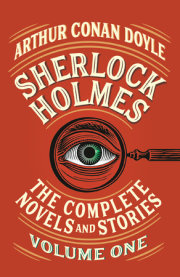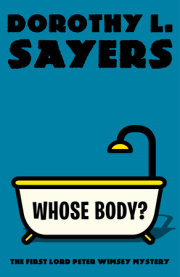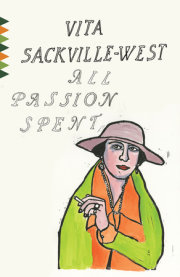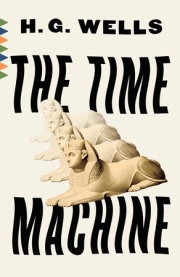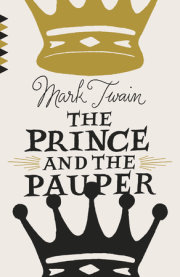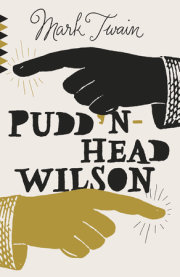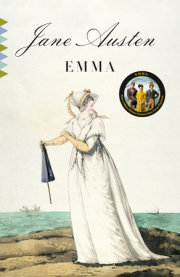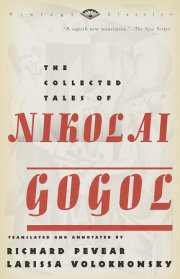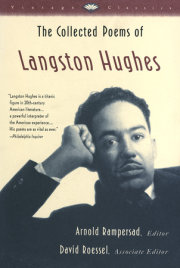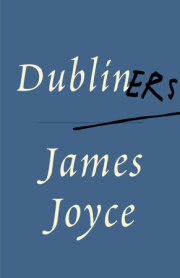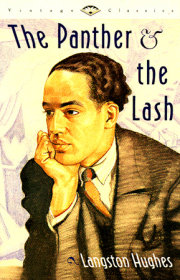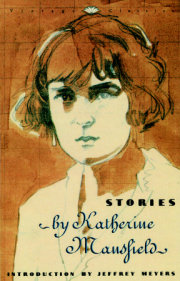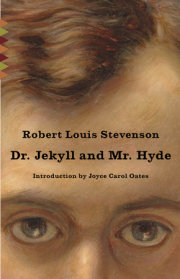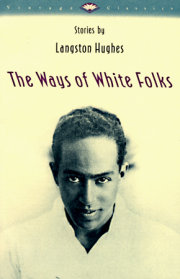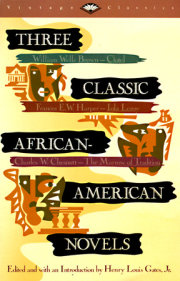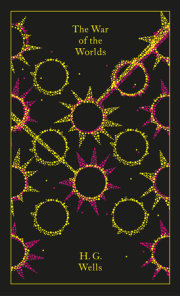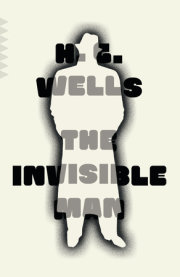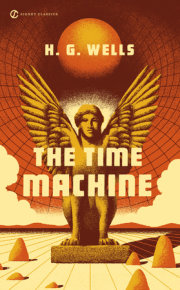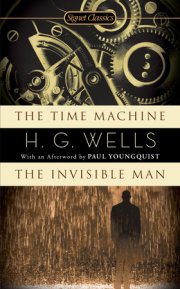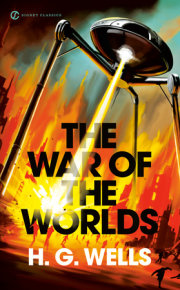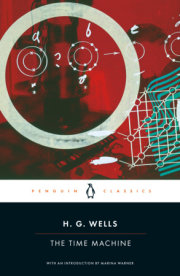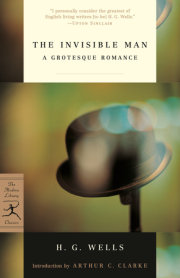excerpt from the Introduction by Ali Smith
. . . .
H. G. Wells wrote several classic, visionary novels about the very worst consequences a past and a present can have on a future – and a great deal of what he wrote, though it takes fantasy form, has come to pass, with stunning corollaries with his own time, the time after him, with our own time, and presumably with the as-yet-unwritten time ahead of us too.
So. What did the socialist visionary, the great, very human, far-seeing man, whose literary rise and circulation in the world had made him exceptionally powerful and exceptionally thoughtful about the workings of power, the man who’d been invited to meet and advise both Roosevelt and Stalin, who’d worked on ways, in his latter years, to ‘release a new form of power in the world’, a power ‘without tyranny’, one ‘to hold men’s minds together in something like a common interpretation of reality’ and a real ‘unification of our race’ and to work for ‘our collective life’ –
What could such a profoundly prophetic writer do, who not only knew but drew for us the thin line between fantasy and reality, possibility and impossibility, and who so convincingly, prophetically and repeatedly envisioned the worst possible things that the world, the universe and the human beings in it can do to each other?
This.
He helped form and sustain PEN, where an internationality of writers would come together and think the world, and fight for and protect each other’s freedom to write and freedom to read.
He helped form and sustain the National Council for Civil Liberties, we know it now as Liberty, to monitor and fight for the civil liberties that human beings need and that weak or bullying governments who want all the power will always want to mess with.
Above all, what we needed to do, Wells believed, was make and ratify as law an international declaration of human rights. In his final years of life, Wells was a core contributor to the Sankey Declaration of the Rights of Man, in fact he was the most active member of its committee, the main drafter of its clauses of fundamental human rights, his versions of which were closely followed in the eventual drafting of the wording for the 1948 UN Declaration of Human Rights, shortly after Wells’s own death in 1946.
Our own Human Rights Act finally passed into law as late as 1998, incorporating into British law for the first time the European Convention on Human Rights, protecting human rights all across Europe and ratified by forty-seven member states (in fact, the UK was one of the first countries to ratify it in 1951, supported, especially by Churchill, as a protection against the possible return of fascism). The current government of the UK, now a hundred days old, announced as soon as it took office that it fully intends to scrap the Human Rights Act, that’s the word they always use, though God help me I find it an obscenity, those words scrap and human and rights together in any sentence. That’s what I call evolution going backwards.
But it’s okay –
There is invisible support all around you. Whether Fortuna the online goddess is right or not, Wells was wise enough to call for a much more visible form of support after a lifetime of seeing the dark of the future and the fragility of the light in people’s eyes. He had known what it meant, since his first years as a writer, to be human and thought of as somewhat alien. And since 1896, when he was a young man writing
The Island of Doctor Moreau, a book all about the beast in the human, he’d been interested in how at the mercy of the random or self-serving lawmakers we are. He was in his seventies when he wrote
The Rights of Man, ‘using “man” of course,’ as he said, ‘to cover every individual male or female, child or adult, of the species’.
Knowing too well in 1940 how little the League of Nations had been able to ‘banish armed conflict from the world’, he called, in
The Rights of Man, for ‘a profound reconstruction of the methods of human living’. What are we fighting for? was his question. His answer: ‘a code of fundamental human rights which shall be made easily accessible to everyone’.
His initial draft included most of the things you can still find in our current Human Rights Act, and is especially, and interestingly presciently, strong on rights to privacy and dismissal of secrecy. ‘All registration and records about citizens shall be open to their personal and private inspection. There shall be no secret dossiers in any administrative department.’
Here are the other suggested rights, in short. Right to nourishment, housing, health care and mental care : right to education : right to have home and private property protected : right to work and earn and be free from slavery : right to move freely about the world : right to public trial and to detention for a short fixed time only : freedom from torture and degrading or inhuman treatment : right not to be force-fed nor stopped from hunger strike if you so choose : and right to finite imprisonment terms.
He spends the book tinkering with the precise wordings of these suggested rights, to get it right, because on the one hand, ‘in its thickets’, as he puts it, ‘governmental activities can interweave with, and at last become indistinguishable from organized crime’. On the other hand, ‘the primary objective of every sane social order is to banish fear . . . from human life’.
Here’s the invisible Wells, writing seventy-five years ago:
“The enormous change in human conditions to which nearly all our present stresses are due, the abolition of distance and the stupendous increase in power, have flung together the population of the world so that a new way of living has become imperative . . . The elaboration of methods and material has necessitated a vast development and refinement of espionage, and in addition the increasing difficulty of understanding what the warfare is really about has produced new submersive and demoralizing activities of rumour spreading, propaganda and the like, that complicate and lose contact at last with any rational objective . . .
“The uprooting of millions of people who are driven into exile among strangers, who are forced to seek new homes, produces a peculiar exacerbation of the mental strain. Never have there been such crowds of migrating, depressing people. They talk languages we do not understand . . . They stimulate xenophobia without intention . . . Their necessary discordance with the new populations they invade releases and intensifies the natural distrust and hostility of man for man – which it is the aim of all moral and social training to eliminate . . .
"For the restoration and modernization of human civilization, this exaggerated outlawing of the fellow citizen whom we see fit to suspect as a traitor or revolutionary and also of the stranger within our gates, has to be restrained and brought back within the scheme of human rights.”
Given how familiar all this sounds, it’s certainly interesting that our own Human Rights Act is right now under attack. You can read it, and find out about the threat to it, online. Look up Liberty, who’ve got a strong Save Our Human Rights Act campaign that needs us all right now. Look up PEN. Look up Amnesty International.
The government keeps calling it Labour’s Human Rights Act. It’s not. It was a cross-party formation, and it’s ours, it belongs to all of us. They want to replace it with a British bill of rights – as if all nationalities are equal, but some are more equal than others. Wells would have dismissed outright the argument for a British bill of rights in the interest of ‘the claims of the common man’, claims ‘against any government that seeks to defeat, exploit or betray’ those common claims.
Back in 1940 he is facing his own ‘incalculable government’, and wants one that will ‘declare for these rights unequivocally – or get out’. To paraphrase him slightly: an act of gross cruelty or injustice that occurs anywhere, wherever it happens, is just as much a British person’s concern, a Scottish person’s concern, an English person’s, an Irish person’s, a Welsh person’s, a [fill in the blank with a nationality of your choice] person’s concern. He knew, as Saramago puts it in his great novel Seeing: ‘rights aren’t abstractions, they continue to exist even when they’re not respected’.
‘There is no source of law,’ Wells says, ‘but the whole people, and since life flows on constantly to new citizens, no generation of the people can in whole or in part surrender or delegate the legislative power inherent in mankind.’ Ah, he was an optimist after all. Ah, there is a heroic in his very human denial of heroes and heroism. There is wildness and revolution in his work, and above all an eye to a future that looks from here to be invisible, but that’s always just a stone’s throw away.
Borges thought Wells’s books, especially the early fantastic classics, would last forever, ‘be incorporated, like the fables . . . into the general memory of the species and even transcend . . . the extinction of the language in which they were written’. Well, that’s a form of very ultimate success. Wells was a bit more short-term about it: ‘The only true measure of success is the ratio between what we might have done and what we might have been on the one hand, and the thing we have made and the things we have made of ourselves, on the other.’
So. You, me, now, here we are. Here it all is. Here it comes. It’s on our watch. (To observe the progress of, maintain an interest in. To have in one’s care, to look after, to guard, to tend. From the Old English: to wake.) What’ll we stand for? A couple of minutes an hour? Or what we call the future?
And on the other hand, what won’t we stand for?
Copyright © 2017 by H.G. Wells. All rights reserved. No part of this excerpt may be reproduced or reprinted without permission in writing from the publisher.

